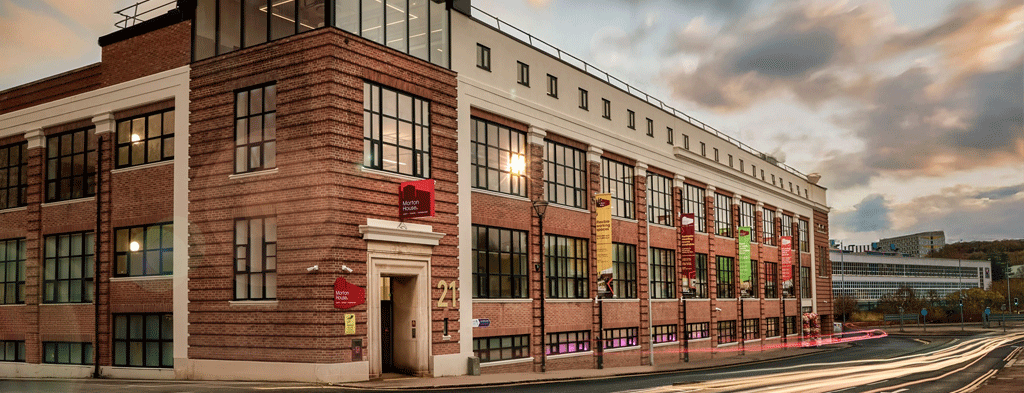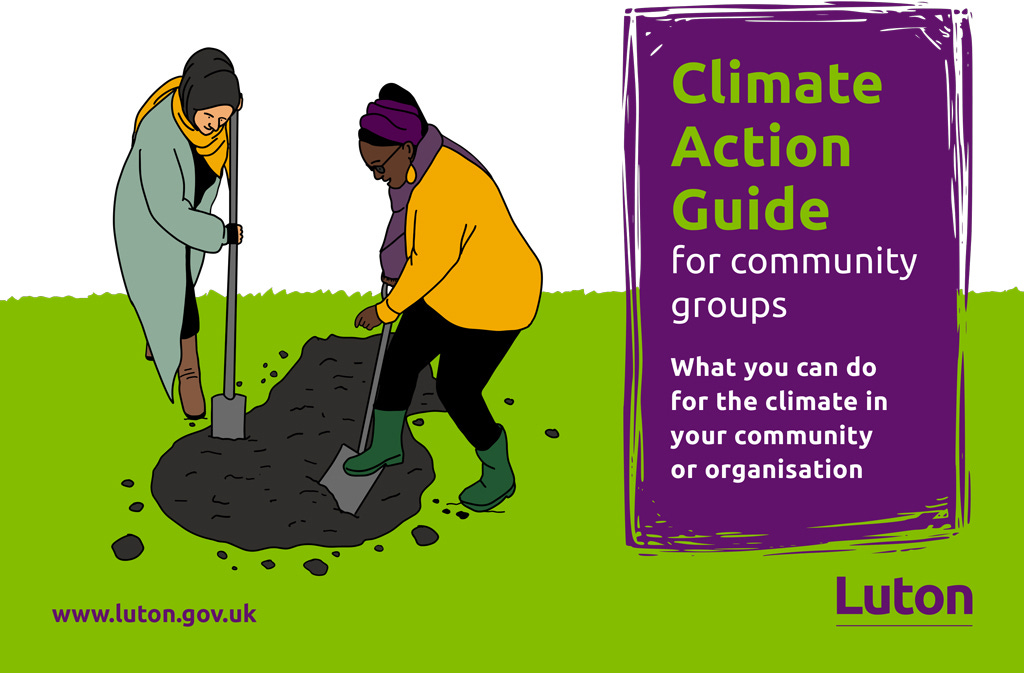Zero Carbon Luton - Issue 1, 2025
Morton House, community guide and a hatful of awards
Things move fast in the climate world, and while there may have been a few backward steps in recent months (hello America!), Luton continues to make strides towards a better and greener world. Here are some highlights from our first bulletin of 2025:
A flagship sustainable office retrofit
New community guide to climate action
Luton’s green award winners
Green features in Morton House
Formerly known as K Block at Vauxhall’s Kimpton Road plant, Morton House is an elegant early 1900s building that once hosted the mail room and typing pool. It sat empty for many years and last week re-opened after a full retrofit.
Acquired by Luton Rising, it will now serve as a business hub and a base for Luton Adult Learning. A new cafe on the ground floor is open to the public, run by the gentlemen behind the Old Skool Pantry in Round Green, if you remember the place.
What makes it relevant to this newsletter is the building’s sustainability credentials, which are considerable. That starts with retrofitting itself, which avoids the waste of demolishing old buildings and the embedded carbon of building new ones. Old wooden floors and stairways have been preserved and restored, adding period character to its modern facelift.
Then there are the 70 solar panels on the roof, and daylight sensors and motion sensors to turn off lights when not in use. Triple glazed windows reduce both heating bills and aircraft noise. There is rainwater harvesting and grey water recycling, and air source heat pumps provide heating and hot water.
The building is well connected to public transport and there are electric car charge points, but those commuting in by bike get the best deal here. Not only is there is cycle storage, there are also showers - and your towels are provided.
As much as possible, the furniture in the building has been sourced within the UK, with one item very local indeed: the big table in the boardroom is made from leftover wooden floor tiles. It’s a great room, and if you want to move your offices in there and boss it at that table, book yourself a viewing.
New community guide to climate action
Lots of climate action focuses on things that individuals can do. Campaigns tend to make demands of government or international corporations. Between those two poles is a whole world of climate action that we can get involved in, but that often gets less attention: the difference we can take in our communities, clubs, workplaces, schools, or places of worship.
Here’s something that might unlock some more community climate action in those sorts of places around Luton:
The climate team at Luton Council has just produced the Climate Action Guide for Community Groups, which has been created in collaboration with a wide variety of communities around the town.
Selected groups that had applied for the Luton Citizen’s Fund were invited to participate, including Ross Park Scouts, St Luke’s Leagrave, Luton Keralites, Community Breakfast Club, Pride, and the Luton Indoor Bowls Club. They all received a day of training on climate change and how to respond, and one-to-one coaching on developing a climate action plan.
This process helped them all to start a conversation about climate change with their audiences, while also providing case studies of what community action looks like in Luton. The result is a guide full of real life examples and real people, many of whom feature in the illustrations by Mandy Johnson.
The guide is accessible and jargon free - or at least I hope so, because I wrote it. It’s full of practical ideas to get communities thinking about what they eat, how they travel, and the energy they use.
This guide is in fact a sequel of sorts, as there is already a climate change guide for citizens. It explains Luton’s emissions, our 2040 climate target, and what you can do to play your part. You can download it from the council website.
Luton’s green award winners
This time last year we reported on how Bedfordshire University was among the greenest universities in the UK, taking third place in the annual rankings from People & Planet. Well, the report for 2025 is out and Beds have reclaimed their place at the top. Yes, we share it with Bedford, but I’m still going to tell everyone that the country’s greenest university is in Luton.
Here are three other award winning green projects in the town that you may not have heard about:
The DART won two prizes at the Global Light Rail Awards last year, for Collaboration of the Year and for Outstanding Engineering. That’s a global awards ceremony, you’ll note, which featured winners from India, Finland, Qatar and Spain. So our DART is drawing international attention.
Though the Sustainable Drainage Awards may rank among the world’s least glamourous awards ceremonies, who cares when the overall winner was William Austin School, Luton, for their incredible rainwater harvesting system?
Luton-based Green Doors took home the Net Hero award from the Small Business Awards, as well as business of the year.
In other news…
This newsletter focuses on solutions and so I haven’t covered it in detail, but it would be remiss not to mention it: Stellantis has confirmed that it will close its Luton plant. As it was making electric vans, this is a huge loss of green jobs in the region.
Since our last email, the Beds, Cambs and Northants Wildlife Trust has launched a podcast on local reserves and the people who work on them.
The CATCH programme is running for a fifth time, taking another six Luton schools through the process of developing a climate action plan. 33 schools have now taken part in the Climate Action Teacher Champion programme.
Tamar Lovindeer-Robinson writes about fly-tipping at the Zero Carbon Luton website.
Got a story for me for the next newsletter? Drop me a line at jeremy@earthboundventures.org



